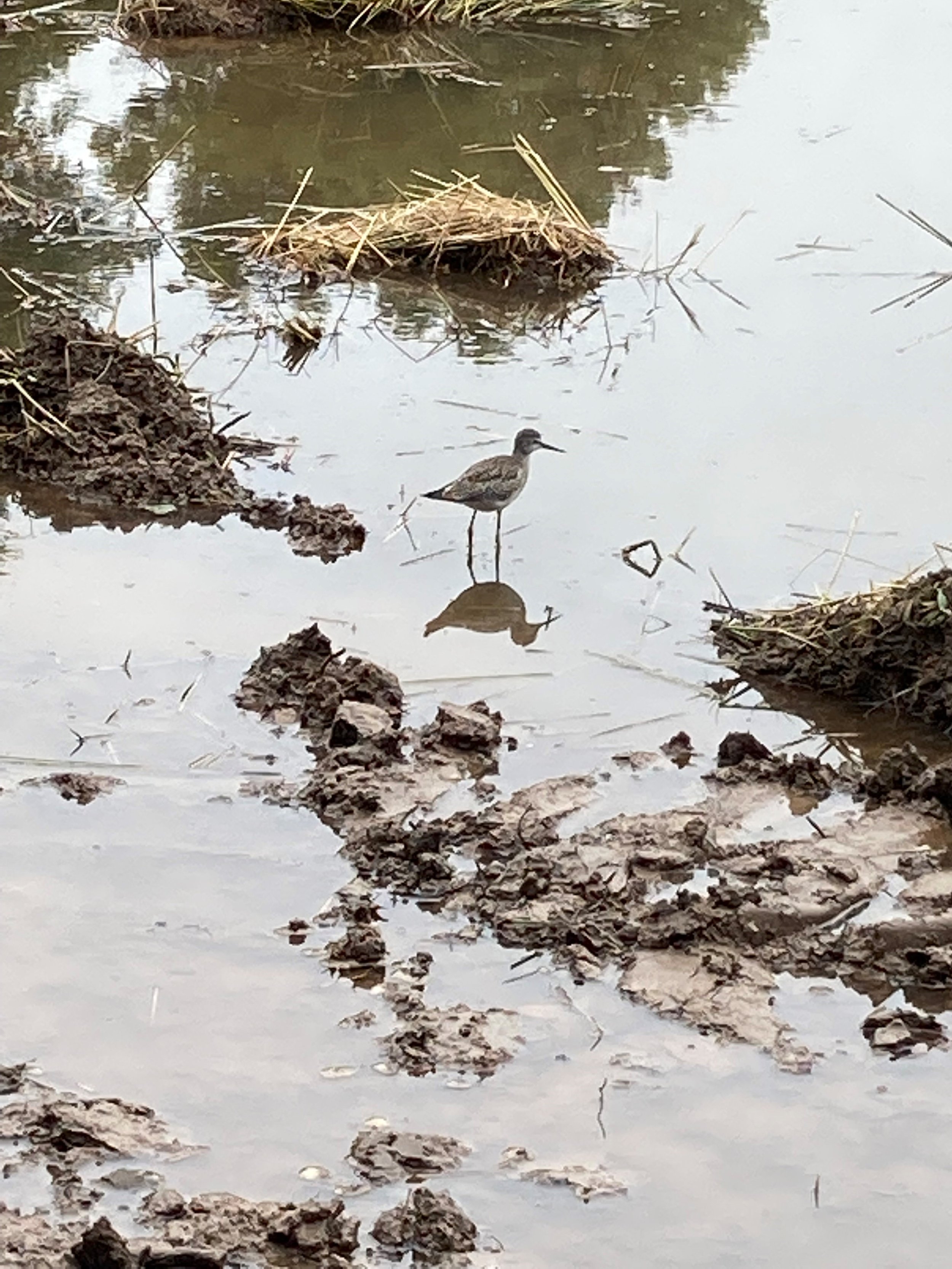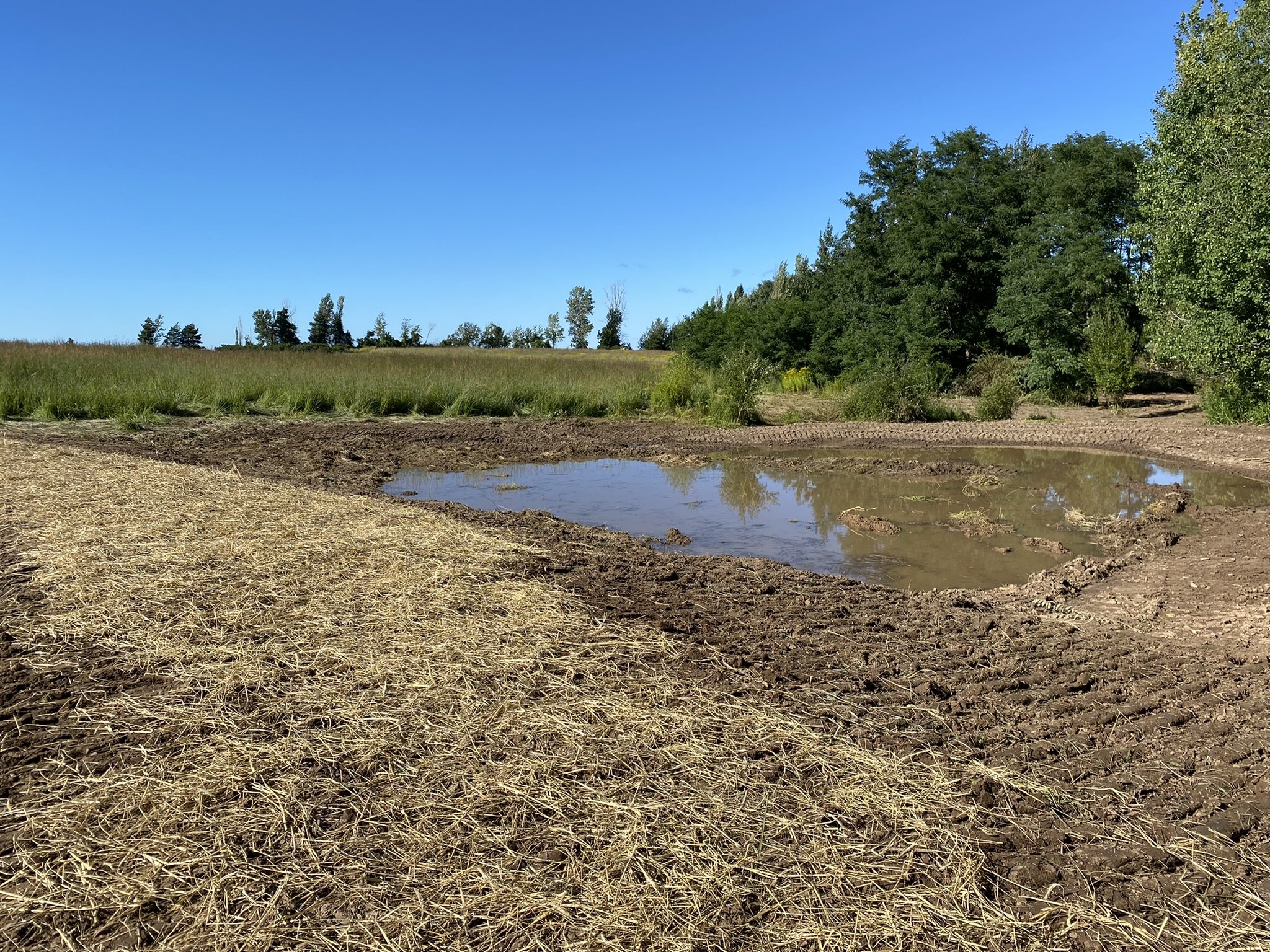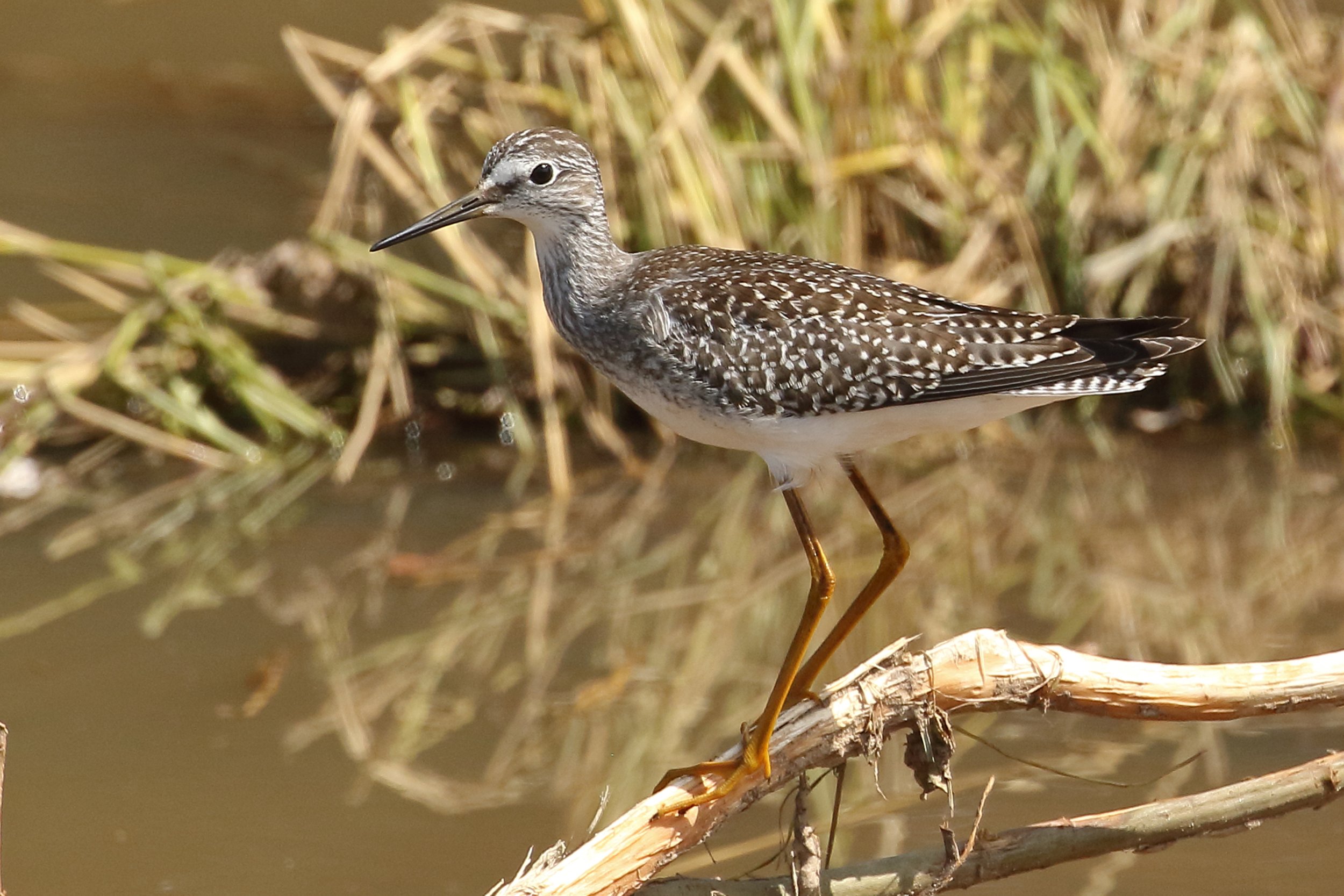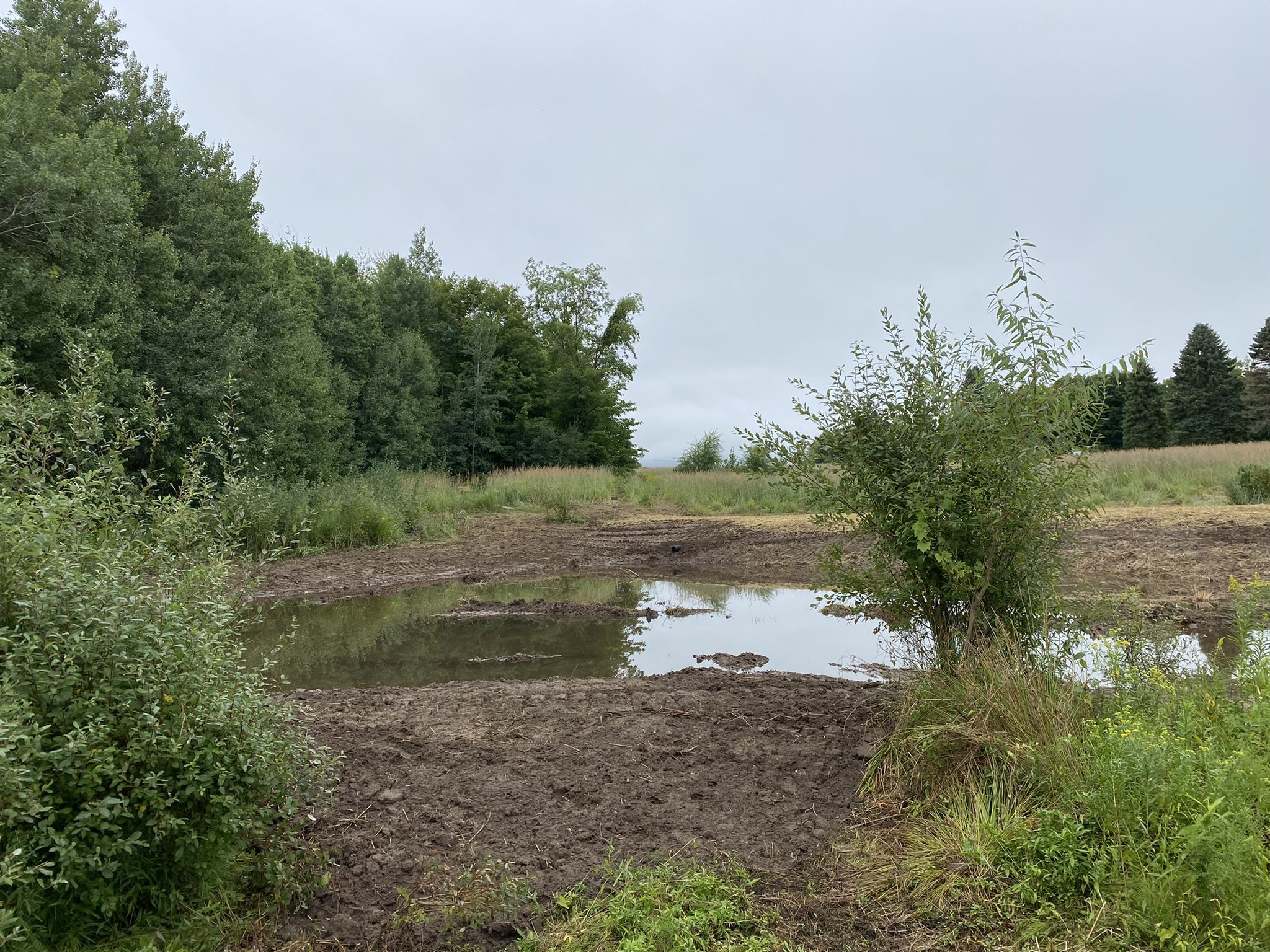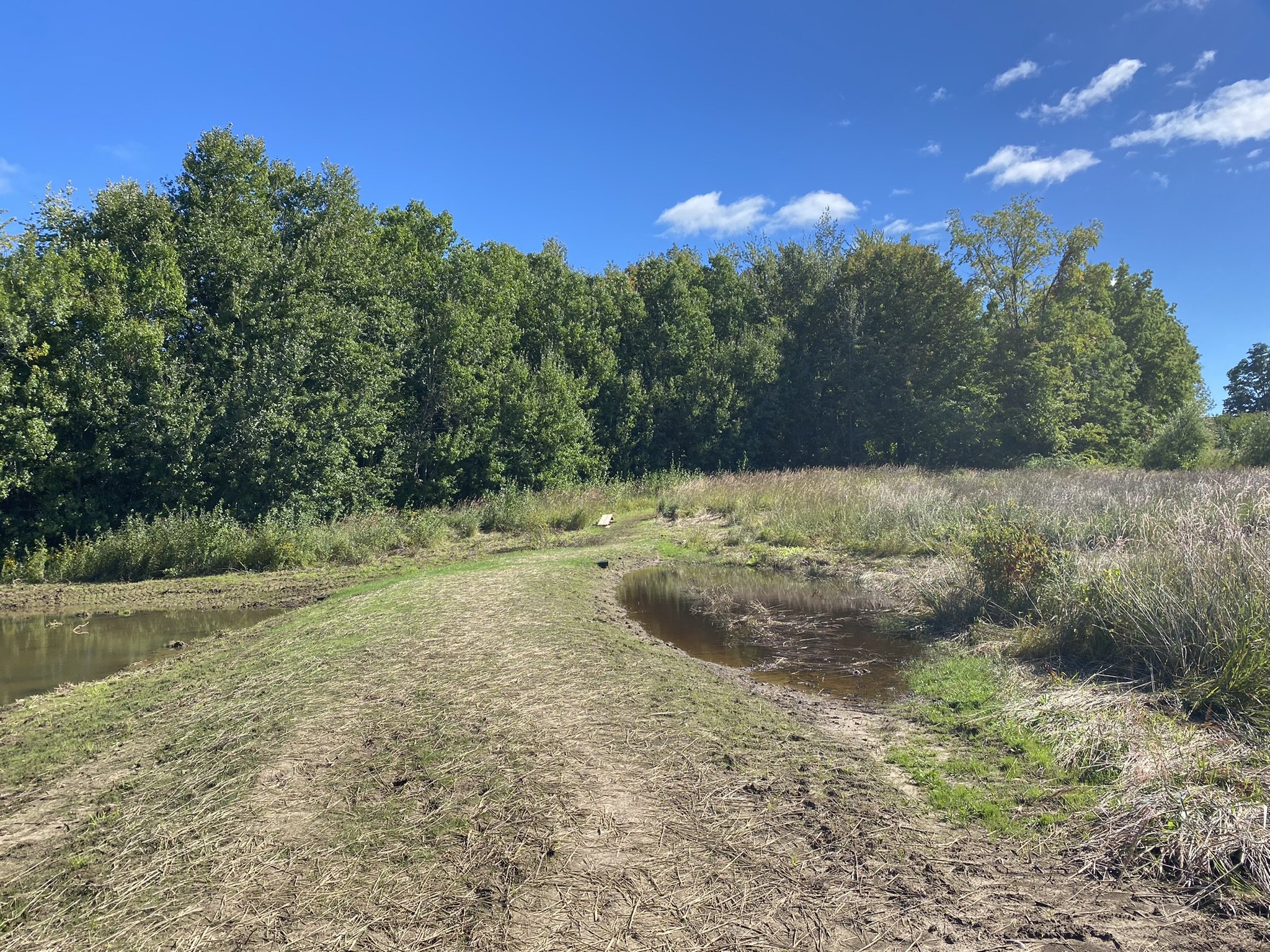Wetland and Habitat Improvement at Cornwall and Macyville Woods Nature Preserves
The wetland restoration part of the project will take place at Cornwall Preserve within the red outlined area. Image by CC Environment and Planning.
In early 2021 Genesee Land Trust received funding through the North American Wetlands Conservation Act (NAWCA) to restore wetlands and improve wildlife habitat at two nature preserves— Cornwall Preserve in Williamson and Macyville Woods Nature Preserve in Sodus Point. This project will take place over the next two years and will allow Genesee Land Trust to restore and enhance wetlands, remove non-native invasive plants, and to plant native vegetation that will benefit birds and other wildlife.
This is Genesee Land Trust’s first NAWCA grant. In the past three decades, NAWCA has funded over 3,100 projects totaling over $1.9 billion in grants. More than 6,500 partners have contributed another $3.9 billion in matching funds to affect 31.5 million acres of habitat. Funding through NAWCA goes to projects that increase bird populations and wetland habitat, while supporting local economies and American traditions such as hunting, fishing, bird watching, family farming, and cattle ranching. Wetlands protected by NAWCA provide valuable benefits such as flood control, reducing coastal erosion, improving water and air quality, and recharging ground water.
PROJECT TIMELINE
Genesee Land Trust has hired CC Environment and Planning to lead project design and implementation. At Cornwall Preserve this will include creating a wetland mosaic in the shrub-wetlands located east of the meadow, treating invasive plants along Lake Ontario’s edge, and planting native plants in both of these areas. At Macyville Woods Nature Preserve this will include connecting an impounded wetland, treating invasive plants, and planting native plants.
The project timeline is outlined below:
Fall/Winter 2021 (COMPLETE)–Complete project design, apply for permits, and collect bids from contractors. Mow dense sections of invasive shrubs.
Winter 2021 (COMPLETE)— Meet with community partners to share project design ideas and to collect project feedback.
Spring 2022 (COMPLETE) –Treat invasive plants along Lake Bluff Trail and in wetland restoration areas.
Summer/Fall 2022 (COMPLETE)–Begin wetland restoration with excavation of potholes, berms, and ditch plugs. Seed exposed ground with native seed.
Spring 2023–Plant native trees and shrubs in areas where invasive plants were treated and newly excavated wetland areas. View plant species list here.
Summer/Fall 2023— Work with volunteers to remove new invasive plants in project areas.
The project will improve habitat for numerous Federal and State threatened, endangered and species of concern including the Bald Eagle, Golden Eagle, American Black Duck, Black Tern, Loggerhead Shrike, Piping Plover, Common and Caspian Ternn, and American Woodcock (pictured above, photo by Willie D’Anna).
PROJECT PLANNING PHOTOS
Draft wetland mosaic restoration design for Cornwall Preserve produced by CC Environment and Planning. Image by CC Environment and Planning.
Invasive plant mapping along the Lake Bluff Trail. Image by CC Environment and Planning.
Community members learning about the project in November 2021.
WETLAND RESTORATION PHOTOS
Photos above show a portion of the new wetlands created along the Cass Meadow Trail. Since the wetland restoration work concluded we’ve already had two new species of birds observed at Cornwall— lesser yellowlegs and solitary sandpiper. Photos by Carol May, Joe Wing, and Genesee Land Trust staff.
If you have questions about the project or are interested in learning more please contact Kevin Farrell at kfarrell@geneseelandtrust.org



